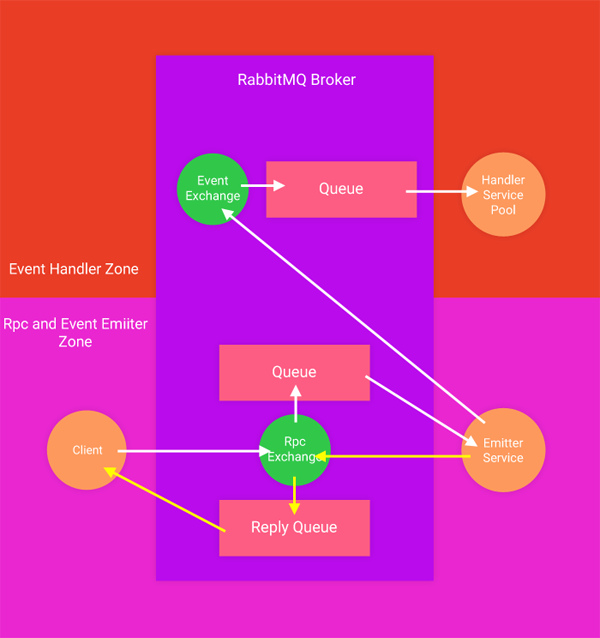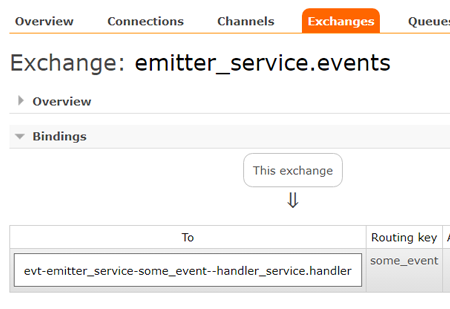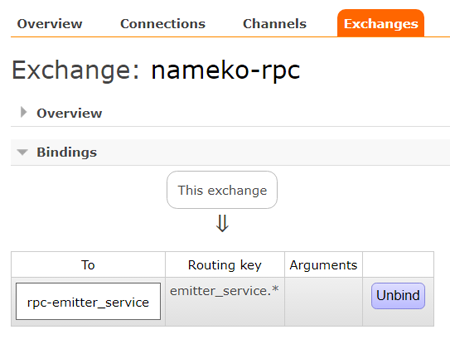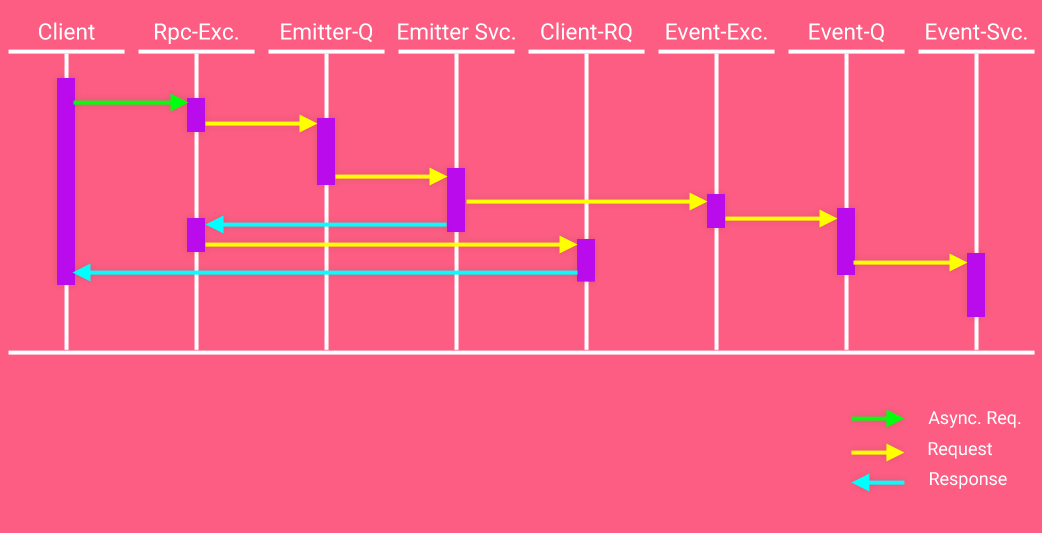Events¶
Events are asynchronous messaging system based on publish subscribe messaging pattern. Publisher will publish a message and from no or all the subscribed consumers will receive the message. Events can work with rpc or http entrypoint for our example we are using rpc.
Source Code¶
We will create two service classes, first class would emit the event and second would receive it. Emitter class code will look like below
1 2 3 4 5 6 7 8 9 10 11 12 13 | # emmiter.py
from nameko import rpc, events
class EmitterService(object):
name = 'emitter_service'
event_name = 'some_event'
dispatch = events.EventDispatcher()
@rpc.rpc
def emit(self):
self.dispatch(self.event_name, 'payload')
|
Let’s define event handler class.
1 2 3 4 5 6 7 8 | # handler.py
class HandlerService(object):
name = 'handler_service'
@events.event_handler('emitter_service', 'some_event')
def handler(self, payload):
print('%s : %s' % (self.name, payload))
|
Setup¶

First, we will look at event handling part.

- starting
emitter_serviceservice will declare an exchangeemitter_service.events(<producer name.event>). - running the
handler-servicewill declare a queueevt-emitter_service-some_event--handler_service.handler(evt-<producer name>-<event name>–<handler service>.<handler method>). - This handler queue will gets bound to
emitter_service.eventexchange with a routing key assome_event(event name).
Next we will see how event_service and rpc is setup.

- This is the standard setup with
nameko-rpcexchange bind torpc-event_servicequeue. - Client declares its reply queue with
nameko-rpcexchange.
Working¶
In nameko shell we call the following command.
n.rpc.emitter_service.emit()

- Client makes an asynchronous call to rpc exchange
nameko-rpc. - Exchange routes the message to
rpc-emitter_servicequeue. - Queue then, routes it to the
emitservice method ofemitter_service. emitservice method dispatches a new message toemitter_service.eventswith routing keysome_event(event name).- Event exchange then routes it to the event handler queue
evt-emitter_service-some_event--handler_service.handler. - Queue then sends the message to the handler method
handler_service.handlerfor processing.